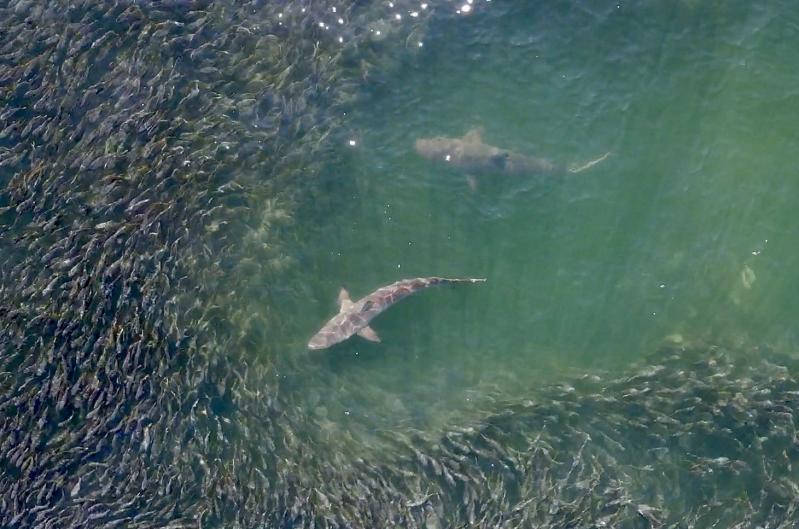The good news is sharks don't want to eat you. The bad news is sometimes they mistake humans for food. The New York State Department of Environmental Conservation issued guidance last week, just in time for ocean swimming season, to reduce "the risk of negative interactions" with and by sharks, like getting bitten.
The D.E.C. offers suggestions for how a person might avoid being mistaken for food. First, avoid swimming in areas where real shark food is waiting to be eaten. This means if you see seals, don't swim around them, and if you see diving seabirds or schools of fish, that's an indication that shark food is nearby. Stay away from that scene, too.
If a shark can't see clearly, it might mistake a human for food. If you can't see into the water, neither can a shark, so swim in clear water.
According to the D.E.C., sharks are most active at dusk, night, and dawn, so swimming at those hours might put you at greater risk of a shark encounter. Swimming in a group may deter a shark. Furthermore, should something bad happen, having others around to help is smart. Likewise, the D.E.C. advises swimming close to shore. Of course, listen to lifeguards and swim in protected areas.
"D.E.C. reminds all visitors to the world-class beaches and coastal waters along New York's shoreline that these are also wild and natural marine ecosystems supporting a wide diversity of marine life, including sharks," the D.E.C.'s interim commissioner, Sean Mahar, said in a statement.
Ultimately, the agency said, the presence of sharks off our beaches is a good thing, indicating a healthy marine ecosystem.




